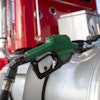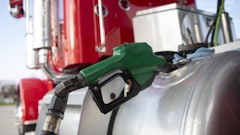
It’s only natural to want an easier solution for efficiency-draining tasks like maintenance. However, as any pro athlete will tell you, advancing to the point where something becomes effortless is rarely easy. It takes commitment and determination, not to mention buy-in from the whole team. Still, the rewards that come with a well-honed trailer maintenance routine — increased safety, more productivity, longer service life and better ROI — make it a worthwhile goal of any operation.
Here are three tips to help create an effective maintenance routine.
Invest in quality, low-maintenance equipment
Starting the game with quality equipment gives teams more time to focus on their skills and improve their performance. The same is true for trailer maintenance. Investing in equipment that minimizes upkeep requirements from the outset makes it easier to establish a maintenance routine. Look for well-constructed units with quality components, such as heavy-duty T-1, 100,000-psi minimum yield steel and premium primer and paint options. These trailers might cost a little more initially but provide long-term dependability that reduces overall maintenance.
Additionally, trailers designed for easy maintenance minimize the hassle for operators and technicians, increasing efficiency. For example, a technician won’t have as much trouble keeping up with tasks like replacing bushings and axle seats if these wearables are easy to access. Solid clamp-in bushings don’t require an expensive press for user-friendly replacement and offer an extended life over slotted designs. Extra-long, contoured axle seats provide a strong connection without the need of added U-bolts and reduce stress on the weld. Cylinders that are mounted parallel to the ground are another option to simplify maintenance. These can be replaced in a matter of minutes, saving a significant amount of time and effort over the life of the trailer.
Keep open lines of communication
On the court, communication is key to making plays and racking up points. But it’s also important in the maintenance bay. Building a solid maintenance foundation relies on good communication and detailed record keeping. Every operation is different, so design a maintenance program and schedule that fits your specific needs. For example, if your trailers need to be on the road all the time, you’ll want to ensure operators run through a thorough pre- and post-trip inspection to catch signs of wear or damage quickly, so you don’t risk unscheduled downtime.
Keeping detailed records of these inspections and other preventative maintenance, including assessments of wearable items and structural observations, will optimize efficiency and keep small issues from becoming larger headaches down the road. Putting proper procedures in place will keep appropriate personnel accountable for performing the maintenance when needed.
Be sure to keep the lines of communication open between operators, technicians and management to ensure everyone is running the same play when it comes to maintenance requirements. Additionally, make sure anyone preforming maintenance is properly trained.
Create a routine that becomes second nature for every team member
While quality equipment and good communication will get an operation off to a good start, it’s not enough to carry you over the goal line. For that, your team needs to put in the practice. Work with managers, operators and technicians to create maintenance routines that work for your operation. Pre-trip inspections are a great place to start. Here are a few things you should consider incorporating for more efficient maintenance:
- Before every trip, thoroughly check the trailer body and system for signs of damage or wear. This includes breaks, tires, suspension, electrical and cylinders, as well as the deck, gooseneck and other components.
- Ensure tires are properly inflated to the right psi. Underinflated tires are one of the biggest culprits of premature ware, so keeping them properly inflated will increase longevity and boost fuel efficiency. Some top-tier manufacturers offer automatic tire inflation systems that make this important task easier for more efficient maintenance and increased peace of mind.
- Confirm hydraulic hoses are free from cracks or damage. If you’re operating a detachable or rear-load model, be sure hydraulic pressure is correct even on self-contained and wet lines.
- Inspect chains, binders, straps or other tie downs, as well — those securing the load and any spares stored on the trailer. Look for cracks, fraying, weak links or other signs of wear that might require replacement.
- Ensure hydraulic cylinders are fully retracted when not in use. This minimizes the exposure of the stainless-steel ram to the elements for maximum longevity.
- Make sure wheel-ends, brakes, cams and slack adjusters are properly lubricated to minimize wear and prevent leakage. For lighting connections, electrical components, lights and lighting harnesses, use dielectric grease to reduce corrosion.
- Double-check load securements to ensure everything makes it to the final destination intact.
A comprehensive maintenance plan is vital for keeping your equipment, employees and loads protected. Creating a maintenance routine that becomes second nature to your team will increase efficiency and provide the best productivity and long-term ROI for your equipment. Work with your dealer or manufacturer to develop a game plan that works for your unique situation.



















